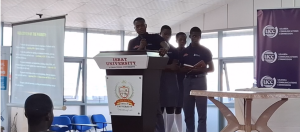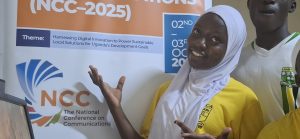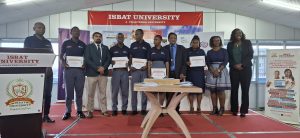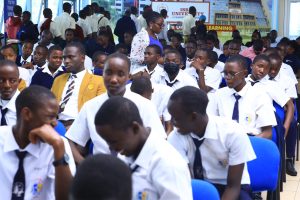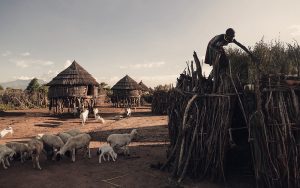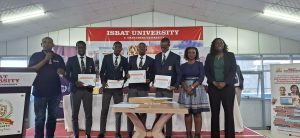Amugu Secondary School Launches ICT Club with Hands-On Training in Digital Skills
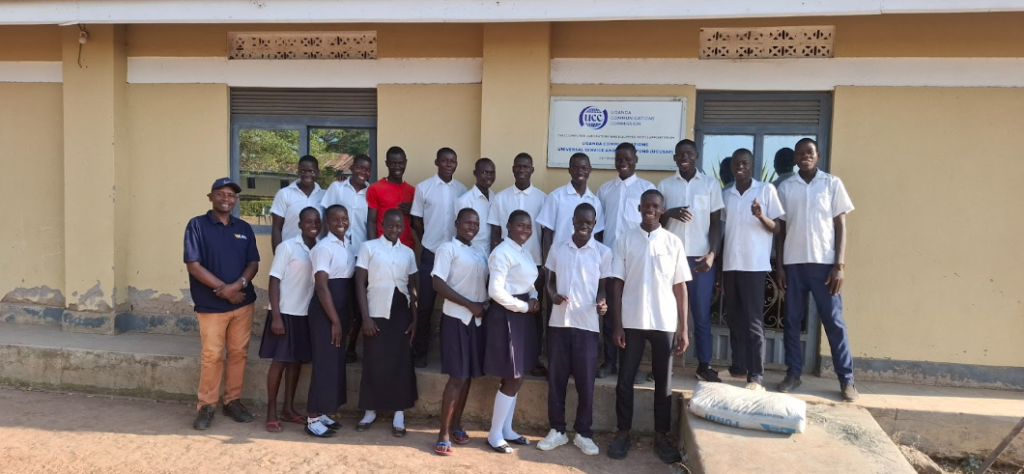

Amugu Secondary School in Alebtong District became the latest institution to officially join Uganda’s growing network of ICT Clubs. Supported by the Uganda Communications Commission (UCC) and coordinated by KAWA Uganda, the school hosted a full-day ICT Club launch and training session. The activity took place at the school’s ICT laboratory and was facilitated by Moses Wamanga from KAWA.
The session drew participation from 125 learners and two staff members, marking a significant step toward enhancing digital literacy and student engagement in technology. One of the key achievements of the day was the successful establishment of the club’s leadership structure. With guidance from KAWA, students democratically elected their club executive team, promoting leadership, responsibility, and ownership. A standardized ICT Club Constitution was also handed over to guide governance, planning, and sustainability.
To support the club’s growth and day-to-day activities, KAWA provided a suite of educational resources. These included access to the national ICT Clubs Portal (www.ictclubs.ug), where learners can find coding tutorials, curriculum materials, presentation slides, among others. A digital version of the ICT Club Handbook was also shared with patrons and student leaders. Additional content such as Scratch and Python tutorials, cybersecurity guides, and innovation-focused materials were introduced under the Tutorials and Innovation sections of the portal.
The training covered key practical areas essential for students managing ICT infrastructure and developing digital competencies. Sessions included lab management practices such as scheduling, equipment handling, and maintenance planning. Learners also gained hands-on experience with computer maintenance, troubleshooting, antivirus use, and basic reinstallation procedures. A dedicated session on internet safety raised awareness around cybersecurity threats, data privacy, and safe browsing. The final training segment introduced learners to beginner-level programming in Scratch and Python and offered insights into the basics of Artificial Intelligence (AI) and its potential relevance in local problem-solving.
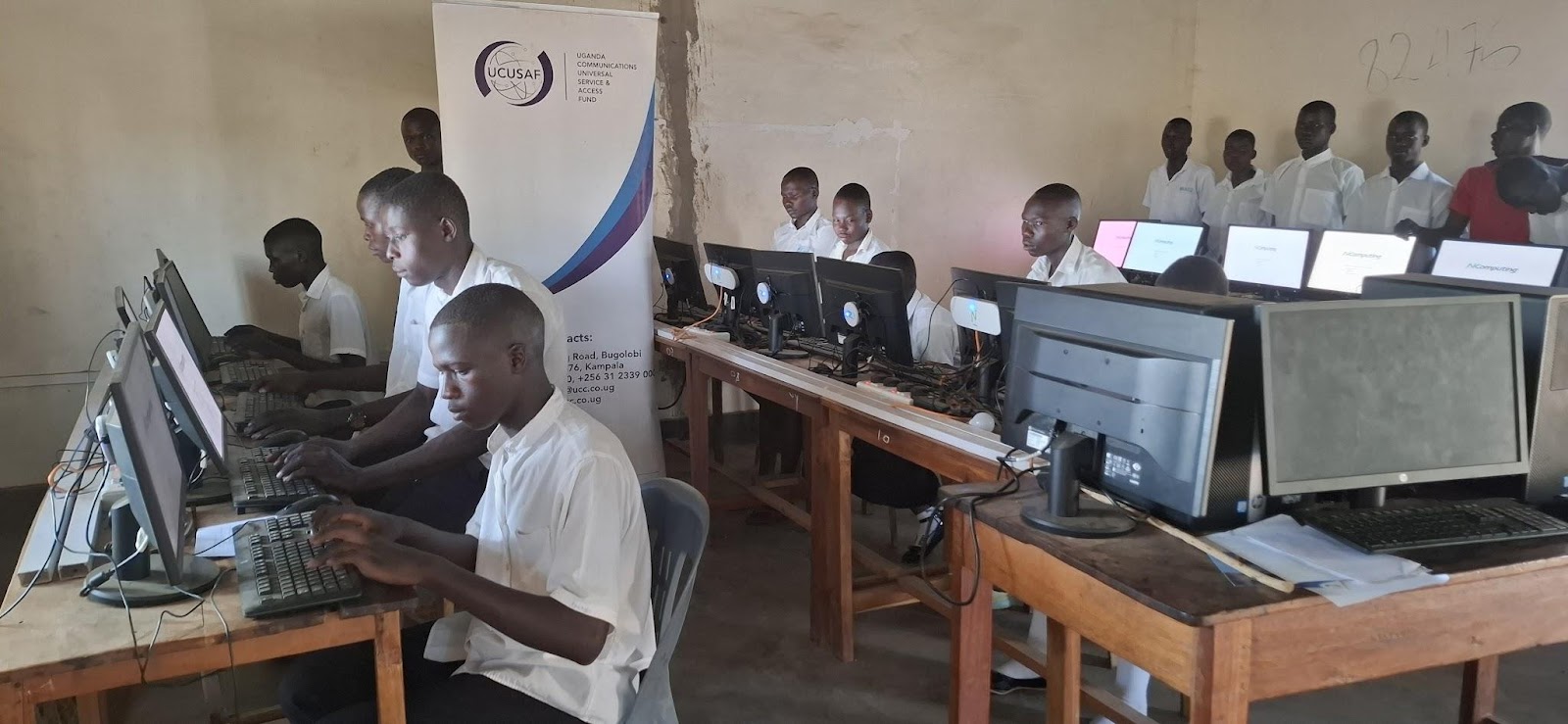
Parallel to the student training, KAWA held an engagement session with the headteacher, ICT teachers, and club patrons to align priorities and strengthen sustainability. This meeting resulted in the initial drafting of an annual ICT Club Activity Calendar. The collaborative planning process aims to ensure consistency in club operations and student-centered activities throughout the academic year.
While the event achieved its major objectives, a few challenges were encountered. Although 40 desktop computers were available for the session, about 30 of them were powered through NComputing terminals, most of which failed to load their operating systems properly. This technical setback limited full participation in the hands-on training. Additionally, adverse weather conditions—including a sudden power outage and heavy rain—disrupted the session and affected the learning environment. The absence of part-time teachers during the training period also reduced staff support.
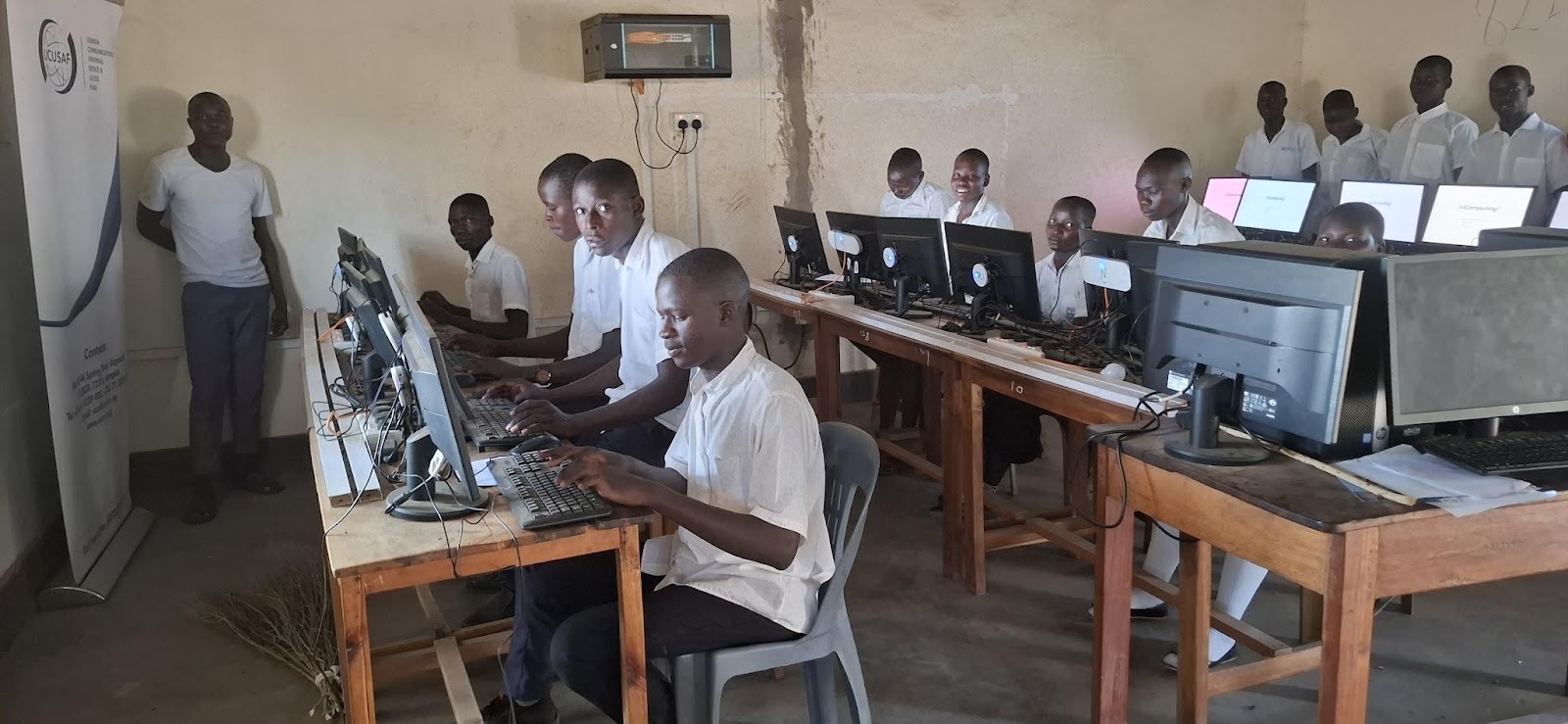
Despite these challenges, the enthusiasm from students and staff demonstrated the school’s strong potential to develop into a regional ICT hub. Only four teachers present owned smart devices, highlighting a gap in access that may affect future digital engagement. However, the school’s readiness to partner and improve was evident.
Looking ahead, KAWA remains committed to supporting Amugu Secondary School with follow-up visits, refresher training, and guidance in preparation for regional and national ICT innovation competitions under the UCC framework. A clear path has been set for continuous growth in computer maintenance, coding, and innovation.
To ensure sustained impact, it is recommended that the school allocates a dedicated ICT budget, invests in reliable power alternatives—such as higher-capacity solar systems—and broadens club membership across all classes. Organizing inter-class ICT competitions, offering skill-based workshops, and establishing partnerships with external stakeholders can also strengthen the club’s role within the school community.
With the right investment and continued support from KAWA and UCC, Amugu Secondary School’s ICT Club is positioned to drive long-term digital transformation and provide valuable learning opportunities to students across Alebtong District.

